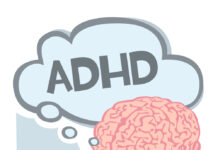Very Slow Tapering Best For Antidepressant Withdrawal
A new article in Lancet Psychiatry finds that slower tapering of SSRIs is better for preventing antidepressant withdrawal effects.
Climate Change, Mental Health and Collective Action: An Interview with Jennifer Freeman
In an interview with MIA's Akansha Vaswani, narrative therapist Jennifer Freeman calls for a shift away from individualistic approaches to 'eco-anxiety' and toward responses that connect us all to a counter-tsunami of action for the planet.
Psychiatry Defends Its Antipsychotics: A Case Study of Institutional Corruption
Jeffrey LIeberman and colleagues have published a paper in the American Journal of Psychiatry stating that there is no evidence that psychiatric drugs cause long-term harm, and that the evidence shows that these drugs provide a great benefit to patients. A close examination of their review reveals that it is a classic example of institutional corruption, which was meant to protect guild interests.
Learning a Different Way: An Interview with Maori Psychiatrist Diana Kopua
MIA’s Ayurdhi Dhar interviews Diana Kopua about the Mahi a Atua approach, the global mental health movement, and the importance of language and narratives in how we understand our world and ease our suffering.
Neuroscientists Attempt to Diagnose Leonardo Da Vinci with ADHD
In a short editorial in the scientific journal Brain, neuroscientists Marco Catani and Paolo Mazzarello argued that Da Vinci had ADHD.
Mad Science, Psychiatric Coercion and the Therapeutic State: An Interview with Dr. David Cohen
MIA's Peter Simons interviews David Cohen, PhD, on his path to researching mental health, coercive practices, and discontinuation from psychiatric drugs.
Antidepressant Use Leads to Worse Long Term Outcomes, Study Finds
Results from a 30-year prospective study demonstrated worse outcomes for people who took antidepressants, even after controlling for gender, education level, marriage, baseline severity, other affective disorders, suicidality, and family history of depression.
Study Finds Heavy Metal Music Beneficial to Mental Health
A new study highlights the role heavy metal music plays in the mental health of adolescents facing adversity.
10 Ways Mental Health Professionals Increase Misery in Suffering People
These 10 areas are not the only ways that mental health professionals can increase misery in suffering people, as there are other physical, psychological, spiritual, and societal adverse effects caused by psychiatrists, psychologists, and other mental health professionals. The article was written in response to AlterNet's recently republished Psychotherapy Networker article, "The 14 Habits of Highly Miserable People," authored by psychotherapist Cloe Madanes, which enraged many readers. The reality is that we human beings can sometimes become so trapped by overwhelmingly oppressive forces (financial, interpersonal, and otherwise) that lecturing us into behaving more joyfully only creates more pain. This leads to the first of "10 Ways Mental Health Professionals Increase Misery in Suffering People."
A Biopsychosocial Model Beyond the Mind-Body Split
Can a renewed biopsychosocial approach, grounded in an updated philosophy, foster person-centered medicine, and psychiatry?
Psychiatrists Argue For More Attention to Iatrogenic Harms
Psychiatrists argue that current practice fails to account for the interaction of biological, psychosocial and iatrogenic factors.
Brain Implants: Spinning the Trial Results to Protect the Product
The published report of the Broaden Trial of Deep Brain Stimulation for Depression whitewashed the results: although the efficacy results were negative, the investigators concluded that the therapy still showed "promise", and adverse events suffered by the patients were downplayed or attributed to the disease, and not the treatment. An in-depth investigation of how the trial results were spun, and interviews with patients that tell of harm done.
Experts Raise Ethical Concerns About Machine Learning in Medicine
The use of machine learning algorithms (known as artificial intelligence) in the medical field raises a slew of ethical concerns.
Gradual Tapering is Most Successful for Withdrawal from Antipsychotics
Mixed-Methods study explores the experiences of antipsychotic discontinuation among service users.
Psychosocially Oriented Psychologists Struggle Against the Medical Model
Interviews with psychosocially oriented psychologists demonstrate their experiences of discomfort with the hegemony of the medical model in their place of work and the conflicts that arise when they attempt to provide alternatives.
Multiple Researchers Examining the Same Data Find Very Different Results
A new study demonstrates how the choice of statistical techniques when examining data plays a large role in scientific outcomes.
It is Time for Global Mental Health to Acknowledge Sociostructural Determinants of Distress
Researchers call for action to address social challenges and inequalities that obstruct mental health and well-being globally.
Zoloft Does Not Improve Depression, Even in Severe Cases, Study Finds
Despite their finding, the researchers suggest that SSRIs be given to people who do not meet criteria for depression or anxiety.
Study Deems Support, Not Drugs, Best for Youth at Risk of Psychosis
Research by five U.K. universities across multiple sites for up to two years divided 288 young adults (14-35 years) deemed at risk for psychosis...
First-Person Accounts of Madness and Global Mental Health: An Interview with Dr. Gail Hornstein
Dr. Gail Hornstein, author of Agnes’s Jacket: A Psychologist’s Search for the Meanings of Madness, discusses the importance of personal narratives and service-user activism in the context of the global mental health movement.
Researchers Address Dangers of Polypharmacy and Inappropriate Medication Use
A new special issue brings together articles exploring the harmful effects of simultaneous multiple medication use.
What Does Social Justice Really Mean for Psychologists?
Without clarity and consensus around what social justice means, psychologists risk perpetuating injustices that undermine their stated mission.
Professionals Push Back on Psychiatric Diagnostic Manual, Propose Alternatives
Criticisms of the DSM-5 spark alternative proposals and calls to reform diagnostic systems in the mental health field.
Lancet Psychiatry’s Controversial ADHD Study: Errors, Criticism, and Responses
Amid calls for a retraction, Lancet Psychiatry publishes articles criticizing the original finding and a response from the authors.
It’s About the Trauma: How to Truly Address the Roots of Violence and Suffering...
Representative Tim Murphy is a psychologist who proposes unsatisfactory solutions to our most pressing social problems. In a "shockingly regressive" piece of legislation known as the “Helping Families in Mental Health Crisis Act of 2013” (H.R. 3717), he proposes to expand the highly controversial practice of Involuntary Outpatient Committment (IOC) for persons with serious mental illnesses. But that approach is not the answer, as documented in a fact sheet authored by the National Coalition for Mental Health Recovery:































